Rieder’s Richter Scale: What Happened to Ryan Murphy?
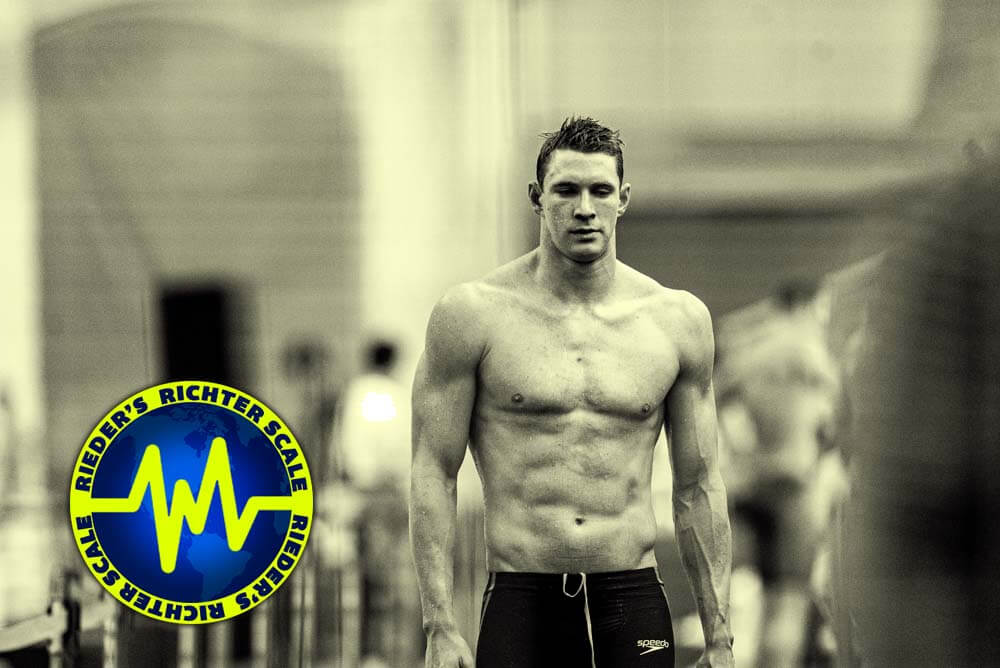
Editorial content for the 2019 World Championships coverage is sponsored by FORM Swim Goggles.
See full event coverage.
Follow FORM on Instagram at @FORMSwim #swimwithform

Each day during the FINA World Swimming Championships, Swimming World will present “Rieder’s Richter Scale,” an analysis of the impact of each swimming final on the sport’s wider landscape: “1” indicates just a minor tremor, while a “10” means a race brought massive upheaval. Ryan Murphy
The women’s and men’s 100 backstroke finals came and went, and neither of the American world record-holders, Kathleen Baker for the women and Ryan Murphy for the men, stood on the medal podium. While Baker’s departure from her top form makes some sense as she has dealt with injuries in 2019, Murphy’s performance stands out as another of those glaring, unanticipated results that have become the norm of these World Championships.
Sure, Murphy’s world record of 51.85 hasn’t been touched in three years, but he came really close when he won gold at the Pan Pacific Championships last summer in 51.94. Before the week started, he hinted of a progression building from his disappointing Worlds in 2017 that would culminate in next year’s Olympics.
“I won’t necessarily take too much from this competition because I know from the training I have done, I have gotten a lot better,” Murphy said in a pre-meet press conference. “Whether that shows up on the scoreboard, we’ll see. But I know I’ll be better next year.”
Sure, he tempered expectations for this year’s championships, but he still showed confidence in his own abilities. And surely he didn’t expect to go out ahead of world record-pace in his 100 back final and then fade badly, badly enough for the sixth-fastest back-half split in the field and badly enough to end up fourth.
Murphy ended up well off the pace of China’s Xu Jiayu, who defended his world title from 2017, and also behind both Evgeny Rylov and Mitch Larkin. His final time was 52.78, one hundredth off the podium and more than nine tenths off his own world record.
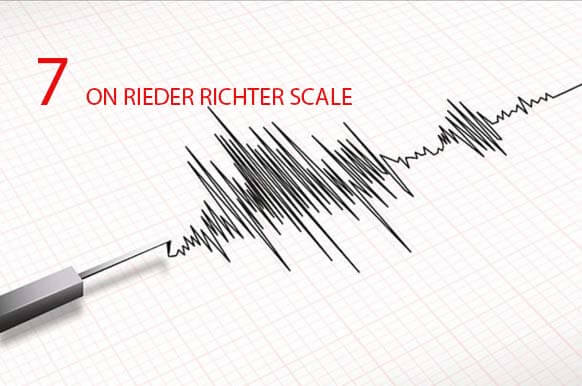
Yes, the U.S. team as a whole has struggled this week, but Murphy seemed to be in a perfect spot to stop the bleeding—only for the dependable backstroke star to do exactly the opposite. And after three days, that leaves the American men with a mere two medals, golds in both the 4×100 free relay and 50 fly (Caeleb Dressel). That’s it.
Make no mistake: It was shocking to watch the world record-holder and Olympic gold medalist fade so badly. Credit to the men who stepped up to claim the podium spots, but Murphy’s disappointment means the 100 back registers on the Richter scale with a 7.
Reaction to the men’s 200 free progressed through three stages. As the athletes touched the wall, Danas Rapsys appeared to win his first World title, his blistering final 50 enough to get by Sun Yang and break 1:45 for the first time. Big breakthrough swim for the 24-year-old Lithuanian and probably a 4 on the Richter scale.
But then came the disqualification. Rapsys was gone, his flinch on the blocks enough for a false start, and now Sun would be awarded his second gold medal of the week. Okay, some post-finish drama, and now a 5 on the scale.
Then came the awards ceremony, where co-bronze medalist Duncan Scott, fresh off a performance (1:45.63) that he surely knew wasn’t his best, became a hero in the eyes of much of the Gwangju crowd and many more across the world.
And then stay for the victory lap and camaraderie: pic.twitter.com/5aMSdJUi1m
— Ross Tucker (@Scienceofsport) July 23, 2019
Best to read our Craig Lord’s take on the situation, which continues to become more embarrassing for both Sun and FINA as swimmers across the world have stood in support of Mack Horton and now Scott.
From Gwangju, the men’s 200 free will go down as perhaps the best-remembered race of the World Championships, for reasons that have nothing to do with Rapsys, the man who no one disputes as the first to touch the wall. This is a 9.
Returning to the women’s 100 back, it made sense at the beginning of the year that Canada, Australia and the United States would complete the medals. And that’s exactly what happened—but only Kylie Masse, who defended a world title, finished in the expected spot.
Baker’s injury problems, which severely limited her training this year, knocked her off her best form, and she ended up tied for sixth in 59.56. Meanwhile, 2015 world champion Emily Seebohm missed Australia’s team entirely, as Minna Atherton and Kaylee McKeown took the 100 back slots for Gwangju.
But going into the final, Baker’s struggles and Seebohm’s absence were old news. Masse entered as the heavy favorite, and she delivered a gold medal, even though she came up well short of her lifetime best (58.10), her best time this year (58.16) and even her semifinal time (58.50).
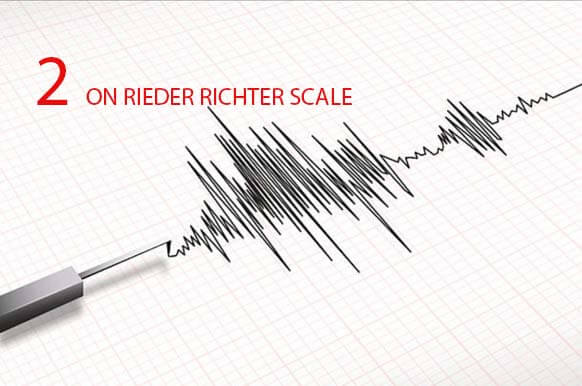
Credit to Atherton for cutting six tenths from her lifetime best in the semifinal and then securing a silver in the final, and credit to Olivia Smoliga for delivering her first individual medal at a major long course meet—although like Maase, Smoliga finished shy of her season best (58.91, compared to a 58.73 earlier this year).
No new developments and overall sluggish times? That’s a 2 on the Richter scale.
About an hour before the day three prelims session began, USA Swimming put out word that Katie Ledecky was scratching the 200 free as she battled an illness, with hopes of being well enough to swim the 1500 free final in the evening session. Immediately, our minds raced: Perhaps Ledecky was already sick during the 400 free final, and that’s why she struggled so badly down the stretch, when Ariarne Titmus swam past her to claim gold.
Not long after, the news came out that Ledecky was scratching the 1500 final as well. Gone was her second shot at winning four straight world titles in one event, but more importantly, what a massive bummer. After months of planning and targeting this week as her chance to swim fast, Ledecky’s health has betrayed her, and that’s just lousy luck and timing.
“This is brutal for her not to be competing. She’s such a tough competitor. She wants to be here,” Greg Meehan, Ledecky’s coach at Stanford and the head coach for the U.S. women in Gwangju, told the New York Times. “If we can get her back in the meet at some point, that would be an ideal scenario.”
It still remains to be seen if Ledecky can get herself healthy enough to swim the 4×200 free relay Thursday and the 800 free this weekend—but even if she does, it’s impossible that she will be racing at 100 percent. Moving forward, it will be interesting to see how Ledecky responds as she pushes towards a potential third Olympics next year in Tokyo.
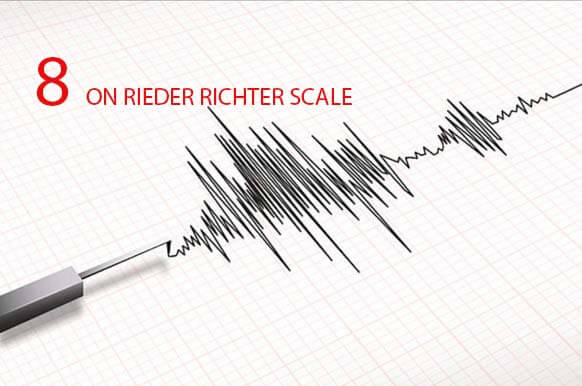
Meanwhile, in Ledecky’s absence, Italy’s Simona Quadarella capitalized and threw down an amazing swim, a 15:40.89 that makes her the fourth-fastest performer in history. But Ledecky has gone quicker on nine separate occasions, including the 15:38.92 she swam to win gold at last year’s Pan Pacs, an effort at the time deemed pedestrian by Ledecky’s standards.
The Richter scale measures impact on the here and now, and it’s hard to consider this meet a true test of the world’s best with Ledecky at far less than 100 percent, let alone completely absent from the field. Her illness and withdrawal means the women’s 1500 free records an 8.
Ledecky might have not been swimming her best before scratching the 200 free, but she still entered as the reigning Olympic gold medalist. Her absence definitely opened up the event to another medal contender. Obviously, Titmus comes to mind, but also her Australian teammate Emma McKeon, who tied Ledecky for silver in the event in 2017, and Canada’s Taylor Ruck, who claimed gold over Ledecky at last year’s Pan Pacific Championships.
But not so fast—before the event kicked off, we learned that McKeon was out, and so was Ruck. McKeon, it turned out, was also feeling less than 100 percent, and Ruck simply wanted to focus on a full program that included the 100 back final at night, the 100 free and 200 back later in the week and relays.
All the sudden, the once-deep and anticipated women’s 200 free lost some of its luster and much of its depth—only for two of the four fastest women in history to make their presence felt in the heats after previously swearing off the event.
World record-holder Federica Pellegrini announced in 2017 that she would stop competing in the 200 free after winning a surprising World title, the third of her career, and Sarah Sjostrom indicated the same after winning silver at the 2016 Olympics. In fact, just this May, Sjostrom explained to Swimming World her reasons for dropping the 200 free, giving no indication of a planned return.
“I was just done with 200 free. I felt like it didn’t really fit into the program, anyway,” she said. “I realized if I swim the 200 free, it’s going to affect my performance in the 50 fly, the 50 free and the 100 free.”
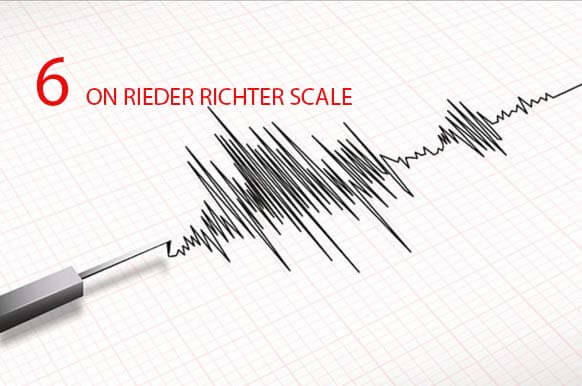
So much for that. Sjostrom swam a 1:55.14 in prelims, the top qualifying time by almost a second, and Pellegrini qualified fifth. Going into finals, Titmus should still be the favorite, but Pellegrini now has the top seed as she matched Sjostrom’s 1:55.14 from prelims. Titmus, Hong Kong’s Siobhan Haughey, Sjostrom and China’s Yang Junxuan all broke 1:55 in semis.
So the women’s 200 free makes an appearance on the Richter scale before we even get to the final. Thanks to some Tuesday morning drama in Gwangju, this records a 6.
To finish off this day’s analysis of swimming’s seismic activity, the women’s 100 breast brought some rare quiet. Seriously. Remember those Lilly King–Yuliya Efimova duals of 2016 and 2017, famous for intensity in the water and antics on deck? The breaststroking action was intense, but the dry-side, not nearly as much.
In typical fashion, King went out quick, and Efimova tried to run her down on the second 50. Just like Rio in 2016 and Budapest a year later, Efimova couldn’t do it, and King again claimed gold, albeit in a 1:04.93 that fell far short of her world record. Aside from the top two, no one else broke 1:06.
And then, immediately after the race and again on the medal podium, King and Efimova… congratulated each other civilly, laughed and shared an embrace.
https://twitter.com/nzaccardi/status/1153680928557948930
What bizzaro world is this? One with a drama-free women’s 100 breast and a 3 on the Richter scale.
.jpg)

- 2017 WORLD CHAMPIONSHIPS
- OFFICIAL MEET PAGE
- WATCH RACE VIDEOS
- LIVE STREAM
- DAY 1 SWIMMING RESULTS
- DAY 2 SWIMMING RESULTS
- DAY 3 SWIMMING RESULTS
- DAY 4 SWIMMING RESULTS
- DAY 5 SWIMMING REULTS
- DAY 6 SWIMMING RESULTS
- DAY 7 SWIMMING RESULTS
- DAY 8 SWIMMING RESULTS
- RESULTS FOR ALL AQUATIC SPORTS
- DAY 8 PRELIMS HEAT SHEETS
- DAY 8 FINALS START LISTS
- FORM Swim for Coaches
- FORM Swim Sponsorships
- FORM Swim Contests
- FORM Swim Media




What an accurate analysis. Objective and clear.
First time the US has been out of the medals for the 100 back, in a long time.
Not as long as you might think, Halim. No medals in either 2009 or 2011 — but they went 1-2 at both the 2008 and 2012 Olympics.
While overall the US has dominated the swimming landscape for decades, every superstar has dealt with shocking defeat on a major stage. We immortalize these athletes and find it impossible to believe they can be beat, and when they are defeated it’s incomprehensible. They are human. The pressure to dominate and to uphold the tradition of swimming excellence is a terrible burden and even the best can find themselves at the wrong end of the podium on a big stage. The key will be to see how these athletes respond to defeat. Will they fade away into oblivion or raise up to retake their titles on the next world stage. Either way they have my support and admiration.
A lot of these top US swimmers as a pro have commitments for their sponsors that takes a lot of time. Hope that they can cut that down the next year and train more.
50m Back is coming up.
He looks too yoked if there was ever such a thing.
The USA seems to always excel during the Olympics but struggles during the run up Worlds. On the other hand, hard to envision anything close to Rio achievements next year, but I hope I’m proved wrong.
The USA pipeline seems thin and our elite level athletes long-in-the-tooth. The rest of the world is or has caught up. Based on GDP and population its not conceivable to me how countries like Canada and Australia and all the rest compete with the USA. Somewhat embarrassing or simply a case or recharge and bad timing for the US of A in 2019.
The worst event for the US men is now the 100 breast, we haven’t won a gold medal at the Olympics since 1992. With Peaty almost 2 full seconds ahead we have a very weak link in the 400 MR. Thankfully GB doesn’t have a great backstroker, although we may still behind after the breast leg.
The best racing ever was when MP challenged the best 200 freestylers in the world. Took heart and class to take them on and loose.
Simple. Way too many short swim meets ( taking time and energy/rest away) because they need $ to eat & pay rent. Most Every country sponsors athletes. Govt of USA does not ❗️❗️.
What happened?? Andrae Pogiongko Miguel Barlisan